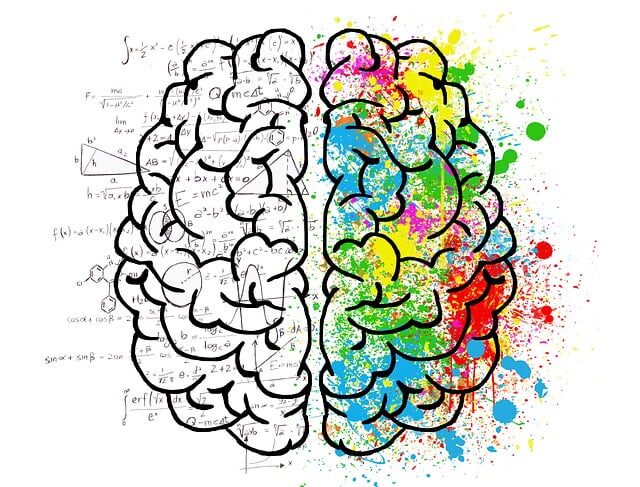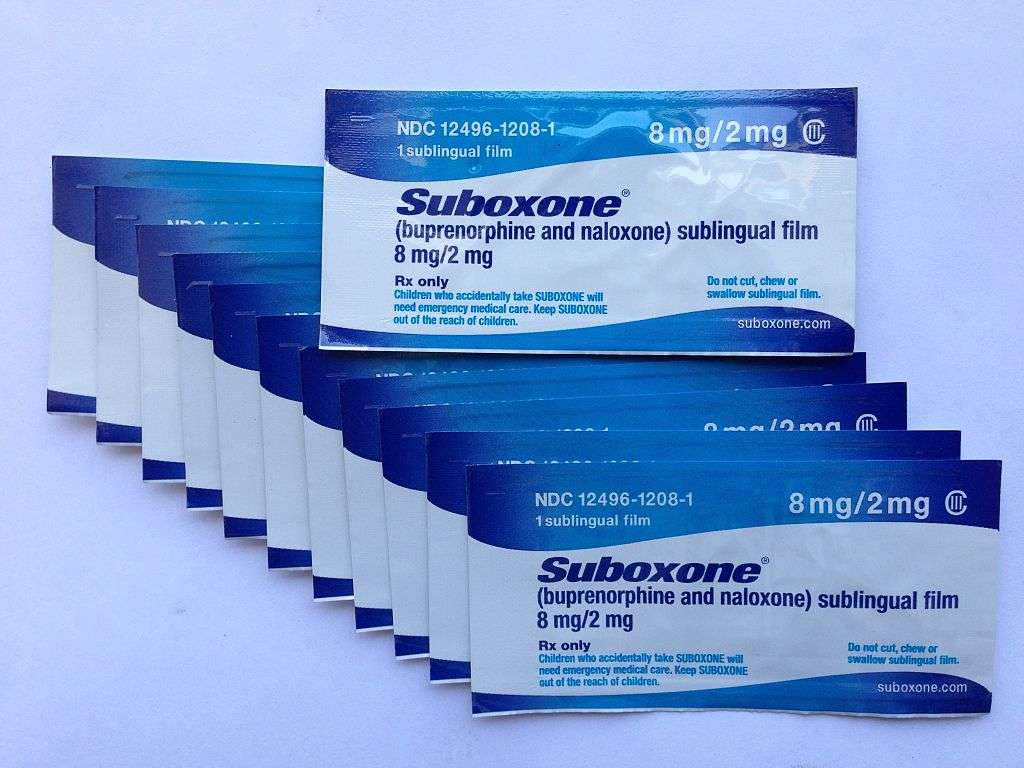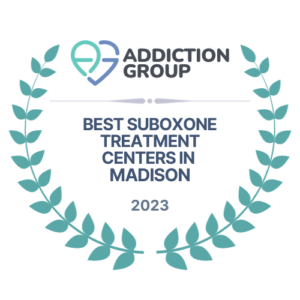Suboxone is a medication that has been approved by the Food and Drug Administration (FDA) to treat opioid addiction, but it may also have potential benefits in treating Major Depression. Major Depression, also known as Clinical Depression, is a serious mental health disorder that affects millions of people around the world. Major depression is a debilitating condition that can severely impact an individual’s quality of life. It is characterized by feelings of sadness, hopelessness, and loss of interest or pleasure in daily activities.
While there are many effective treatments for depression, some people may not respond well to traditional antidepressant medications or may experience intolerable side effects. This is where Suboxone, a medication used to treat opioid addiction, may come in as a potential alternative treatment option for major depression. Suboxone contains a combination of buprenorphine and naloxone, and works by attaching to the same receptors in the brain that opioids bind to, thereby reducing cravings and withdrawal symptoms associated with opioid addiction. However, recent studies have shown that Suboxone may also have potential benefits in treating major depression, even in individuals without a history of opioid addiction.
In this article, we will explore the possible use of Suboxone for Major Depression, including how it works, its effectiveness, and its potential benefits and risks.


Understanding Major Depression
Before we dive into the potential use of Suboxone for Major Depression, it’s important to first have a thorough understanding of what major depression is and how it is diagnosed. To better understand major depression, let’s first take a closer look at its definition, causes, symptoms, and diagnosis:
Definition of Major Depression
Major depression is a mental health disorder characterized by persistent feelings of sadness, hopelessness, and a loss of interest or pleasure in activities that were once enjoyed. These feelings can last for weeks, months, or even years, and can significantly impact an individual’s daily life.
It’s estimated that over 300 million people globally suffer from depression, with around 17.3 million adults in the United States experiencing at least one major depressive episode in their lifetime.
Causes of Major Depression
There is no one specific cause of major depression, and it is often the result of a combination of genetic, environmental, and social factors. These can include family history, chemical imbalances in the brain, life events such as trauma or loss, and ongoing stress or conflict.
Studies have shown that people with major depression have differences in the structure and function of certain areas of the brain compared to those without the condition. Genetics may also play a role, as major depression can run in families. Environmental factors such as stress, trauma, and abuse can trigger or worsen major depression. Additionally, imbalances in neurotransmitters such as serotonin, norepinephrine, and dopamine are believed to contribute to the development of major depression.
Symptoms of Major Depression
The symptoms of major depression can vary from person to person but generally include feelings of sadness, hopelessness, and despair. Other common symptoms include loss of interest in previously enjoyed activities, changes in appetite and sleep patterns, difficulty concentrating, fatigue, irritability, and feelings of worthlessness or guilt. Physical symptoms such as headaches, stomachaches, and other aches and pains are also common in people with major depression.
Diagnosis of Major Depression
A diagnosis of major depression is typically made by a healthcare professional based on a combination of symptoms, medical history, and physical exam. The healthcare provider may also use certain diagnostic tools such as the Diagnostic and Statistical Manual of Mental Disorders (DSM-5) or the Patient Health Questionnaire (PHQ-9). In some cases, blood tests or other medical tests may be done to rule out other conditions that may be causing or contributing to the symptoms.
Current Treatment Options for Major Depression
When it comes to treating major depression, there are various options available that can help alleviate the symptoms and improve the quality of life for those who suffer from this debilitating condition. While there is no one-size-fits-all approach to treating depression, most treatment plans will include a combination of antidepressant medications, psychotherapy, and other treatment modalities.
Antidepressant Medications
Antidepressant medications are one of the most commonly prescribed treatments for major depression. These medications work by regulating the levels of neurotransmitters in the brain, which are responsible for mood regulation. There are various types of antidepressant medications available, including selective serotonin reuptake inhibitors (SSRIs), serotonin-norepinephrine reuptake inhibitors (SNRIs), tricyclic antidepressants (TCAs), and monoamine oxidase inhibitors (MAOIs). While these medications can be effective in reducing the symptoms of depression, they also come with side effects and may not work for everyone.
Psychotherapy
Psychotherapy, also known as talk therapy, is another effective treatment option for major depression. This type of therapy involves working with a licensed mental health professional to identify and change negative thought patterns and behaviors that may be contributing to depression. There are various types of psychotherapy available, including cognitive-behavioral therapy (CBT), interpersonal therapy (IPT), and psychodynamic therapy. Psychotherapy can be done individually or in a group setting, and can help individuals with major depression develop coping skills and strategies to better manage their symptoms.
Other Treatment Modalities
In addition to antidepressant medications and psychotherapy, there are various other treatment modalities that can be used to treat major depression. These include electroconvulsive therapy (ECT), transcranial magnetic stimulation (TMS), and light therapy.
ECT involves passing electrical currents through the brain to induce a brief seizure, which can help alleviate the symptoms of depression. TMS uses magnetic fields to stimulate nerve cells in the brain, while light therapy involves exposure to bright light to regulate the body’s circadian rhythms. While these treatment modalities may not be appropriate for everyone, they can be effective for those who have not responded well to other treatment options.
Suboxone: A Closer Look
In this section, we will take a closer look at Suboxone, its mechanism of action, approved and off-label uses, and its potential benefits for depression.
What is Suboxone?
Suboxone is a medication that contains two active ingredients: buprenorphine and naloxone. Buprenorphine is a partial opioid agonist that works by binding to the same receptors as opioids, but with less intensity, thus reducing cravings and withdrawal symptoms. Naloxone, on the other hand, is an opioid antagonist that blocks the effects of opioids and prevents misuse. Suboxone is available in the form of sublingual tablets or films that are placed under the tongue for absorption.
How Does Suboxone Sork?
Suboxone works by binding to the same receptors in the brain as opioids, but with less intensity, which reduces cravings and withdrawal symptoms. It also contains naloxone, which helps to prevent misuse. When taken as prescribed, Suboxone can help individuals manage their addiction and reduce the risk of relapse.
Approved Uses of Suboxone
Suboxone is approved by the U.S. Food and Drug Administration (FDA) for the treatment of opioid dependence. It is used as part of a comprehensive treatment plan that includes counseling and behavioral therapy.
Off-Label Uses of Suboxone
While Suboxone is primarily used for opioid addiction, there is growing evidence to suggest that it may have potential benefits for other conditions, including major depression. Off-label use refers to the use of a medication for a purpose other than what it was approved for by the FDA. In the case of Suboxone, off-label use for depression is still being studied and is not yet approved by the FDA. However, some doctors may prescribe it off-label for this purpose if they believe it may be beneficial for their patients.
Suboxone and Major Depression


Suboxone and major depression are two topics that have been gaining attention in the medical field. Major depression is a severe mental health condition that affects millions of people worldwide. Traditional treatment options such as antidepressant medications and psychotherapy are often used to manage the symptoms of major depression. However, recent studies have shown that Suboxone, a medication commonly used to treat opioid addiction, may also be an effective treatment for major depression.
Research Studies on the Effectiveness of Suboxone for Major Depression
Suboxone has been studied for its effectiveness in treating major depression. Researchers have found that Suboxone can have positive effects on symptoms of depression such as sadness, anxiety, and insomnia. Some studies have shown that Suboxone is more effective that traditional antidepressant medications in treating major depression, while other studies have shown mixed results.
One study published in the Journal of Clinical Psychopharmacology found that Suboxone was effective in reducing symptoms of depression in patients who were also struggling with opioid dependence. The study concluded that Suboxone may be a safe treatment option for patients with co-occurring major depression and opioid addiction.
However, it is important to note that Suboxone is not approved by the FDA for the treatment of major depression. It is primarily used for the treatment of opioid dependence. While some doctors may prescribe Suboxone off-label for major depression, it is important to weigh the potential benefits against the possible risks and side effects. Despite the promising results of some research studies, more research is needed to fully understand the potential benefits and risks of using Suboxone for the treatment of major depression.
How Suboxone Compares to Traditional Antidepressant Medications
Suboxone is a relatively new medication in the field of depression treatment, and its effectiveness in treating depression is still being studied. However, some research suggests that Suboxone may be an effective alternative to traditional antidepressant medications. In a study published in the Journal of Psychiatric Practice, patients with treatment-resistant depression who were given Suboxone reported significant improvement in their symptoms. Another study published in the Journal of Clinical Psychopharmacology found that Suboxone was effective in reducing symptoms of depression in patients with comorbid opioid use disorder.
One advantage of Suboxone over traditional antidepressants is that it has a lower risk of abuse and dependence. This is because Suboxone contains buprenorphine, a partial opioid agonist that has a lower risk of abuse than full opioid agonists like morphine and heroin. In addition, Suboxone has a ceiling effect, which means that taking more of the drug does not increase its effects, making it less likely to be abused.
Possible Side Effects of Using Suboxone for Major Depression
Like all medications, Suboxone can cause side effects. Some of the common side effects of Suboxone include nausea, constipation, headaches, and sweating. These side effects are usually mild and go away on their own as the body adjusts to the medication.
In some cases, Suboxone can cause more serious side effects, such as respiratory depression, which can be life-threatening. Respiratory depression is more likely to occur if Suboxone is taken in high doses or in combination with other drugs that depress the respiratory system, such as benzodiazepines.
Suboxone can also cause withdrawal symptoms if it is stopped abruptly. This is because Suboxone contains buprenorphine, which is an opioid agonist. Withdrawal symptoms can include anxiety, insomnia, sweating, and diarrhea. To avoid withdrawal symptoms, it is important to gradually taper off Suboxone under the guidance of a healthcare professional.
The Role of Suboxone in Treating Co-Occurring Substance Use Disorders
The co-occurrence of substance use disorders and major depression is not uncommon. In fact, the two disorders often go hand in hand, with each condition potentially exacerbating the other. For individuals with co-occurring substance use disorders and major depression, treatment can be challenging. However, Suboxone may offer a solution.
Substance Use Disorders and Major Depression
Substance use disorders and major depression are both serious mental health conditions that can have a significant impact on a person’s life. Substance use disorders refer to a pattern of drug or alcohol use that leads to significant impairment or distress. On the other hand, major depression is a mood disorder that causes persistent feelings of sadness, helplessness, and worthlessness.
Research has shown that individuals with substance use disorders are more likely to experience symptoms of major depression, and vice versa. For example, individuals with a history of major depression are more likely to develop a substance use disorder. Similarly, individuals with a substance use disorder are more likely to experience symptoms of major depression.
How Suboxone Can Help With Co-Occurring Substance Use Disorders and Major Depression
Suboxone is a medication that is commonly used to treat opioid use disorders. However, research has shown that Suboxone may also be effective in treating co-occurring substance use disorders and major depression.
One way that Suboxone can help with co-occurring substance use disorders and major depression is by reducing the symptoms of both conditions. For example, research has shown that Suboxone can reduce symptoms of depression in individuals with opioid use disorder. Similarly, Suboxone has been shown to reduce opioid cravings and withdrawal symptoms, which can help individuals manage their substance use disorder.
Suboxone can be used as a part of a comprehensive treatment plan that includes psychotherapy and other supportive services. This can help individuals address the underlying issues that may contribute to both their substance use disorder and major depression.
Overall, while Suboxone is not a cure for co-occurring substance use disorders and major depression, it can be an effective tool in helping individuals manage both conditions and improve their overall quality of life.
Potential Benefits and Risks of Using Suboxone for Major Depression
When it comes to treating major depression with Suboxone, there are both potential benefits and risks to consider. It is important to weigh the potential benefits against the possible risks before starting any treatment.
Advantages of Using Suboxone for Major Depression
- Suboxone has been shown to have a relatively low risk of abuse and dependence compared to other opioids, which can make it a safer option for patients with co-occurring substance use disorders.
- Suboxone can help alleviate symptoms of both major depression and opioid addiction, potentially improving treatment outcomes for patients with co-occurring conditions.
- Suboxone is a long-acting medication, which means that it can be administered less frequently than other antidepressants or opioids, which may improve patient adherence to treatment.
- Suboxone can be prescribed by a licensed healthcare provider in an office-based setting, which can make it more accessible to patients who may not have access to specialized treatment centers.
Risk and Disadvantages of Using Suboxone for Major Depression
- Suboxone can have side effects such as nausea, vomiting, constipation, headache, and insomnia.
- Suboxone can interact with other medications, including some antidepressants, which can increase the risk of adverse effects.
- Some patients may experience withdrawal symptoms if they stop taking Suboxone, which can make it difficult to discontinue treatment.
- Suboxone may not be covered by all insurance plans and can be expensive without insurance coverage.
It is important to discuss the potential benefits and risks of using Suboxone for major depression with a healthcare provider before starting any treatment. A healthcare provider can help determine if Suboxone is the right treatment option and develop an individualized treatment plan.
Can Suboxone Really Help with Major Depression?
Research studies have shown that Suboxone may be effective in treating major depression, particularly in individuals who have co-occurring substance use disorders. However, more research is needed to fully understand the potential benefits and risks of using Suboxone for major depression.
It is important to note that the U.S. Food and Drug Administration (FDA) has not yet approved Suboxone as a treatment for major depression. This means that Suboxone is currently considered an off-label treatment for this condition. However, healthcare providers may still prescribe Suboxone for major depression if they believe it to be an appropriate treatment option for their patients.


Conclusion
If you are considering Suboxone as a treatment option for major depression, it is important to discuss the potential benefits and risks with your healthcare provider. Suboxone may not be the right treatment option for everyone, and there are other treatments available that may be more appropriate for your specific situation.
It is also important to remember that Suboxone should only be used under the guidance and supervision of a qualified healthcare provider. Misuse of Suboxone or other opioids can be dangerous and potentially life-threatening.
Overall, while Suboxone shows promise as a treatment option for major depression, more research is needed to fully understand its potential benefits and risks. It is important to work closely with a healthcare provider to determine the most appropriate treatment plan for your individual needs.
Interested to learn more? Read more related articles: How Medication Assisted Treatment Works to Combat Addiction
Contact National Addiction Specialists For Your Suboxone Treatment
National Addiction Specialists is here to help and support you if you are struggling with opioid addiction.
You can use your phone, tablet, or computer to chat and speak with a doctor in the comfort of your own home. You’ll receive your individualized treatment plan and continue to receive telemedicine care up until you reach full recovery.
Get in touch with us to start taking steps to beat your opioid addiction.
References:
https://oxfordtreatment.com/addiction-treatment/detox/suboxone/used-for-depression/
https://www.ncbi.nlm.nih.gov/pmc/articles/PMC6121503/
https://www.frontierspartnerships.org/articles/10.3389/adar.2022.10254/full













